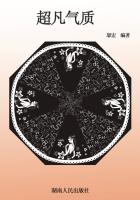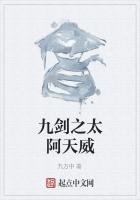Warfare we regarded as an institution of the "Great Mystery"-- an organized tournament or trial of courage and skill, with elaborate rules and "counts" for the coveted honor of the eagle feather. It was held to develop the quality of manliness and its motive was chivalric or patriotic, but never the desire for territorial aggrandizement or the overthrow of a brother nation.
It was common, in early times, for a battle or skirmish to last all day, with great display of daring and horsemanship, but with scarcely more killed and wounded than may be carried from the field during a university game of football.
The slayer of a man in battle was expected to mourn for thirty days blackening his face and loosening his hair according to the custom. He of course considered it no sin to take the life of an enemy, and this ceremonial mourning was a sign of reverence for the departed spirit. The killing in war of non-combatants, such as women and children, is partly explained by the fact that in savage life the woman without husband or protector is in pitiable case, and it was supposed that the spirit of the warrior would be better content if no widow and orphans were left to suffer want, as well as to weep.
A scalp might originally be taken by the leader of the war party only and at that period no other mutilation was practiced. It was a small lock not more than three inches square, which was carried only during the thirty days' celebration of a victory, and afterward given religious burial. Wanton cruelties and the more barbarous customs of war were greatly intensified with the coming of the white man, who brought with him fiery liquor and deadly weapons, aroused the Indian's worst passions, provoking in him revenge and cupidity, and even offered bounties for the scalps of innocent men, women, and children.
Murder within the tribe was a grave offense, to be atoned for as the council might decree, and it often happened that the slayer was called upon to pay the penalty with his own life. He made no attempt to escape or to evade justice. That the crime was committed in the depths of the forest or at dead of night, witnessed by no human eye, made no difference to his mind. He was thoroughly convinced that all is known to the "Great Mystery," and hence did not hesitate to give himself up, to stand his trial by the old and wise men of the victim's clan. His own family and clan might by no means attempt to excuse or to defend him, but his judges took all the known circumstances into consideration, and if it appeared that he slew in self-defense, or that the provocation was severe, he might be set free after a thirty days' period of mourning in solitude. Otherwise the murdered man's next of kin were authorized to take his life; and if they refrained from doing so, as often happened, he remained an outcast from the clan.
A willful murder was a rare occurrence before the days of whiskey and drunken rows, for we were not a violent or a quarrelsome people.
It is well remembered that Crow Dog, who killed the Sioux chief, Spotted Tail, in 1881, calmly surrendered himself and was tried and convicted by the courts in South Dakota. After his conviction, he was permitted remarkable liberty in prison, such as perhaps no white man has ever enjoyed when under sentence of death.
The cause of his act was a solemn commission received from his people, nearly thirty years earlier, at the time that Spotted Tail usurped the chieftainship by the aid of the military, whom he had aided. Crow Dog was under a vow to slay the chief, in case he ever betrayed or disgraced the name of the Brule Sioux. There is no doubt that he had committed crimes both public and private, having been guilty of misuse of office as well as of gross offenses against morality; therefore his death was not a matter of personal vengeance but of just retribution.
A few days before Crow Dog was to be executed, he asked permission to visit his home and say farewell to his wife and twin boys, then nine or ten years old. Strange to say, the request was granted, and the condemned man sent home under escort of the deputy sheriff, who remained at the Indian agency, merely telling his prisoner to report there on the following day. When he did not appear at the time set, the sheriff dispatched the Indian police after him. They did not find him, and his wife simply said that Crow Dog had desired to ride alone to the prison, and would reach there on the day appointed. All doubt was removed next day by a telegram from Rapid City, two hundred miles distant, saying:
"Crow Dog has just reported here."
The incident drew public attention to the Indian murderer, with the unexpected result that the case was reopened, and Crow Dog acquitted. He still lives, a well-preserved man of about seventy-five years, and is much respected among his own people.
It is said that, in the very early days, lying was a capital offense among us. Believing that the deliberate liar is capable of committing any crime behind the screen of cowardly untruth and double-dealing, the destroyer of mutual confidence was summarily put to death, that the evil might go no further.
Even the worst enemies of the Indian, those who accuse him of treachery, blood-thirstiness, cruelty, and lust, have not denied his courage, but in their minds it is a courage that is ignorant, brutal, and fantastic. His own conception of bravery makes of it a high moral virtue, for to him it consists not so much in aggressive self-assertion as in absolute self-control. The truly brave man, we contend, yields neither to fear nor anger, desire nor agony; he is at all times master of himself; his courage rises to the heights of chivalry, patriotism, and real heroism.
"Let neither cold, hunger, nor pain, nor the fear of them, neither the bristling teeth of danger nor the very jaws of death itself, prevent you from doing a good deed," said an old chief to a scout who was about to seek the buffalo in midwinter for the relief of a starving people. This was his childlike conception of courage.















